DRACULA

27 JULY - 01 AUGUST
ADAPTED BY LIZ LOCHHEAD
DIRECTED BY PHILIP CRAWFORD
BY ARRANGEMENT WITH NICK HERN BOOKS
LYRIC DRAMA STUDIO PRESENTS

27 JULY - 01 AUGUST
ADAPTED BY LIZ LOCHHEAD
DIRECTED BY PHILIP CRAWFORD
BY ARRANGEMENT WITH NICK HERN BOOKS
LYRIC DRAMA STUDIO PRESENTSWelcome back to the Lyric Theatre.

It has been a long 17 months since we last opened our doors to our audience. Since then, we have all gone through the various lockdowns, testings, isolation, working from home, zooming for work, quizzes, and zooming absent family members. Some of us have experienced heart-breaking tragedy in this time. Some have welcomed new members into their life. The world kept turning but in a different way.
Over this past year and a half, so many of us have felt a sense of displacement, perhaps a loss of social integration, a growing sense of isolation and anxiety if a stranger sneezed near us. And what is also certain now is we have to figure out how we keep going.
As theatres, we were the very first to voluntarily close our doors, and we are now the very last to be allowed to open up again. We do this with the highest safety guidelines in place, as you will see throughout the theatre. We open our theatres again to bring a sense of hope and to help battle our anxiety. If required that we close our doors again because the numbers are going up, then we will.
am delighted that we are opening with Drama Studio, our Creative Learning department’s fantastic initiative to offer young people interested in theatre a chance to train and to experience a thoroughly rehearsed and professional production.
am almost equally delighted that we are opening with a production of Dracula by Bram Stoker in a version by the superb Scottish poet Liz Lochhead.
Bram Stoker was born to a middle-class family in Dublin in 1847. That year became infamously known as “Black ‘47”, as it was the worst year of the famine. His mother, Charlotte, had memories of a cholera plague in her hometown in Sligo when she was a child. She would tell a young impressionable Bram about the undertaker all masked up and in black calling on her father’s door each day and asking if coffins were needed. She wrote an account of the plague at the request of her son years later and talked about how this vicious plague attacked every second house in the vicinity. In the end, five eights of the townspeople died. Some living were buried with the dead because no doctors or health staff were left to confirm or deny life. Some
of these buried souls scratched and clawed their way back out of the ground giving rise to sightings of “the undead” on lonely country roads.
Bram Stoker went on to be the theatre manager of the Lyceum Theatre in London and worked closely with one of the most dynamic actors of the Victorian age, Henry Irving. It’s said he based the character of Dracula on the charismatic Irving. Henry Irving even went on to play Dracula in the theatre!!
Whatever the virus Covid-19 leaves us with in the end, one hopes a young, dynamic, imaginative artist will create a masterpiece out of this strange time. Just as Stoker did by creating the most infamous vampire ever known, Count Dracula.
To watch these young people engage imaginatively in a story that has its roots in a real virus from the 19th century and has been transformed into a world-wide phenomenon of fear by the sheer creative force of an Irish writer, gives one hope. Because people like being spooked in books, on films and in the theatre but, maybe, not in real life.
Enjoy the show, stick around for a drink in the amazing bar afterwards and meet the dynamic young cast – in a socially distanced way of course.
Take care, Jimmy Fay Executive Producer.
have been fascinated by Dracula since was a little boy. I can clearly remember watching the old Hammer Horror offerings on a Friday evening on television and then going off to bed, but not before making sure my bedroom window was securely closed and vampireproofed!
Many years later, I was teaching at Wellington College in Berkshire and was delighted to hear that Christopher Lee (my Dracula) had agreed to visit his alma mater. I was even more excited when was asked to interview him in front of a live audience. I hastily read his autobiography (Lord of Misrule) and on the appointed day, waited – in trepidation – for him to arrive. When the door of the Dining Room opened, there he stood – looking for all the world exactly like the Count. As we shook hands, he stared at me with his penetrating dark eyes, and I felt I was face-to-face with Dracula himself! It was certainly a memorable, if not a terribly comfortable experience.
A few years later, I was introduced to a colleague (now a friend, who has been drafted in to help with this production) from Romania – Transylvania to be precise. was agog – in my ignorance I hadn’t realised it was a real place. The name Dracula effected the same response as the mention of leprechauns does from the Irish. Nonetheless, a few years later, I was privileged to spend my 40th birthday touring the region with her. Sitting in the back of the car in Transylvania, reading Stoker’s novel as the sun went down, is one of my most precious memories.
I’d had Liz Lochhead’s script on the shelf for quite some time, waiting for the right cast to come along. In 2019, our Drama Studio had a number of actors who were right for the play and we cast and programmed it for June 2020. That, of course, didn’t happen. In September, half the cast left Northern Ireland for Drama Schools elsewhere but we were fortunate to be able to complete the company with some of the September 2020 intake.
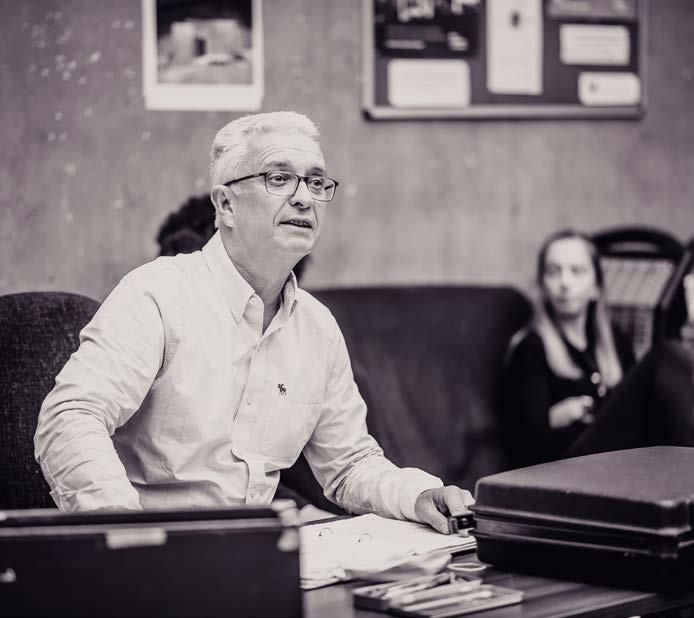
It’s been a most unusual rehearsal process, which began with 6 weeks of text analysis on Zoom. That was followed by a two month break before we started socially distanced rehearsals in the Lyric in May. We looked at various dates for the show, eventually settling on the end of July – not realising the timing would prove so crucial: the show goes up on 27th – one day after the NI Assembly has permitted theatres to re-open.
And so, armed with our trusty crucifixes, garlic and Lateral Flow tests, we have made it thus far and hope that unlike any self-respecting vampire, the production will, after all, see the light of day!
“IT’S BEEN A MOST UNUSUAL REHEARSAL PROCESS, WHICH BEGAN WITH 6 WEEKS OF TEXT ANALYSIS ON ZOOM”
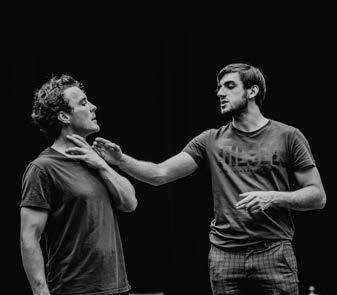
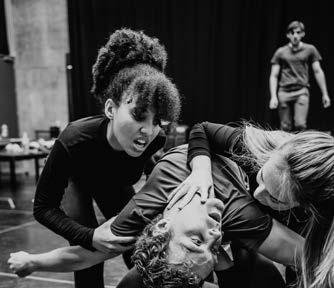
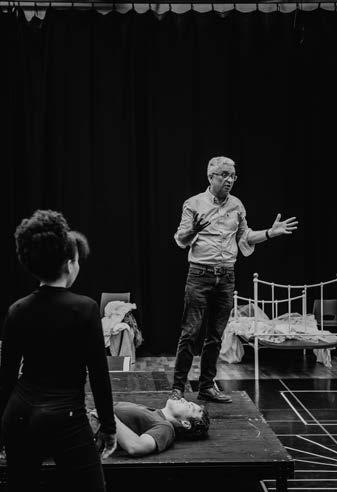
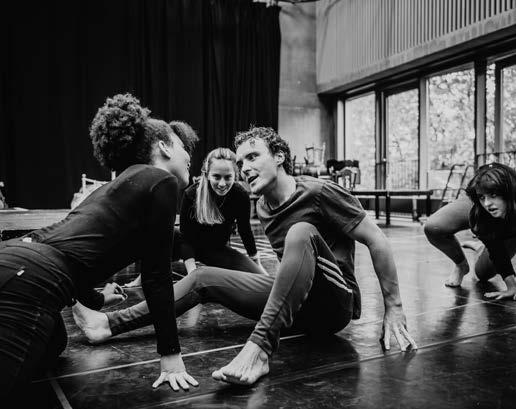
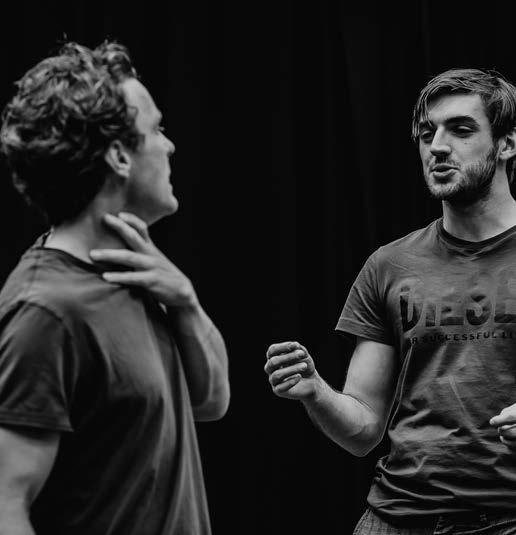
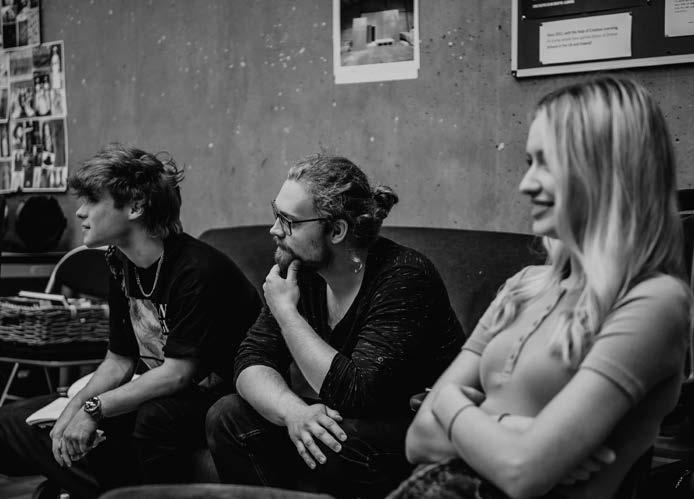
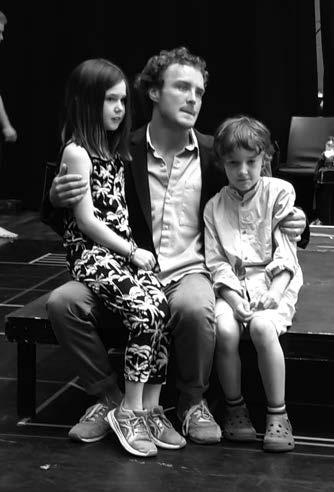
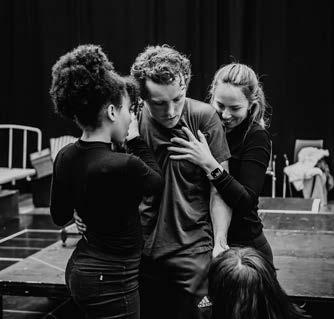
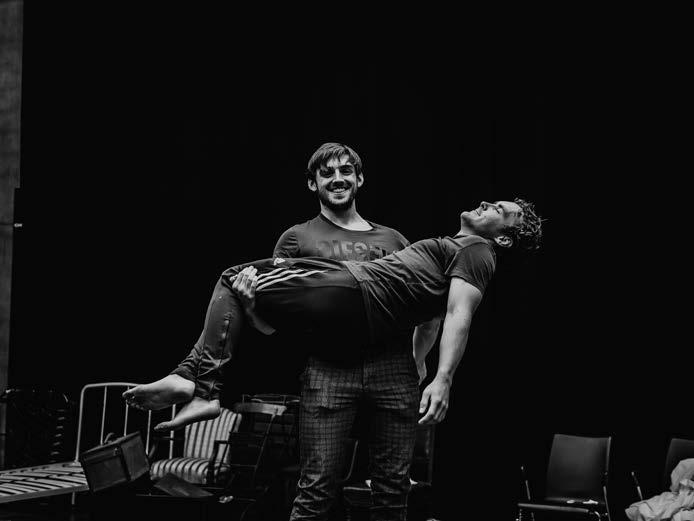
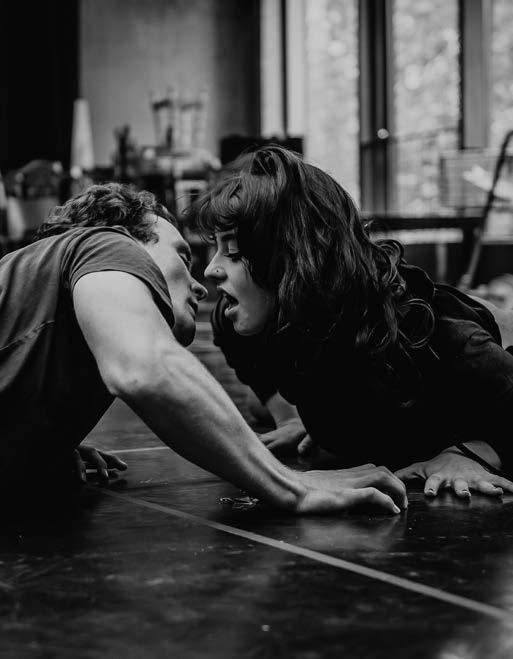
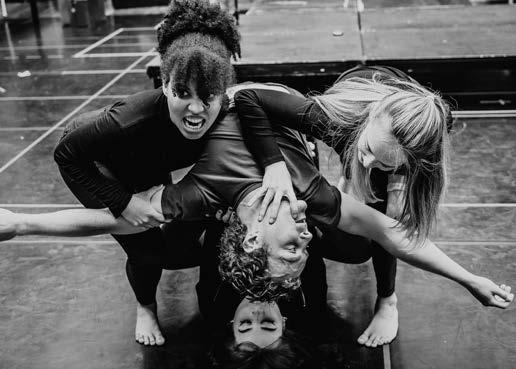
“WHAT REALLY ATTRACTED ME…TO THE STORY WAS RULE ONE FOR BECOMING A VAMPIRE-VICTIM: ‘FIRST OF ALL YOU HAVE TO INVITE HIM IN.’ WHAT UNAPPEASED HUNGER IN LUCY WOULD CAUSE HER TO INVITE HIM IN?”
Lockheadwas born in Dublin in 1847. He recovered from a somewhat sickly childhood to attend
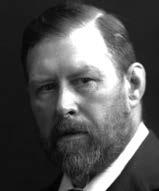
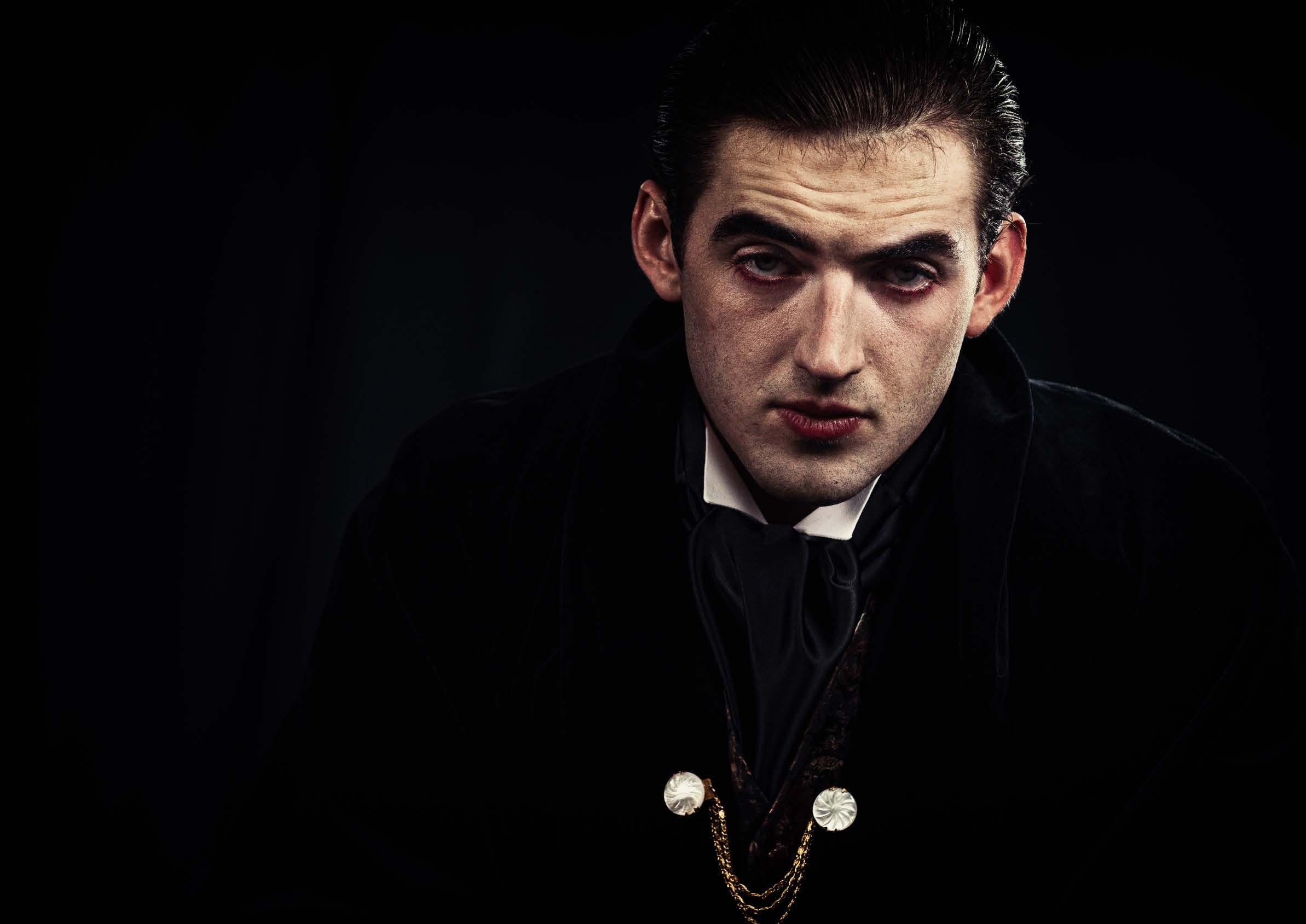
where he studied Mathematics, became involved successfully in athletics, and was elected President of the Philosophy Society.
graduating, he joined the Civil Service as well as supplementing his love of the arts by writing theatre reviews for the Dublin Evening Mail. He went on to marry Florence Balcombe (whose former suitor was Oscar Wilde). Their son was born shortly before the family moved to London where Stoker worked as the Personal Assistant of Sir Henry Irving and Business Manager of the Lyceum Theatre. In 1890 he holidayed in Whitby, Yorkshire where he began writing his best remembered novel, Dracula. Stoker died in 1912.
Liz Lochhead is a poet, playwright and occasional theatre director. She was born in Lanarkshire in 1947 and educated at Glasgow School of Art. Her original stage plays include Mary Queen of Scots Got Her Head Chopped Off, Blood and Ice and Perfect Days. She has successfully adapted a number of other works including Molière’s Tartuffe, Euripedes’ Medea and Sophocles’ Oedipus and Antigone Liz lives in Glasgow. She became the city’s Poet Laureate in 2005 and was appointed Scotland’s Makar, their National Poet, in 2011.
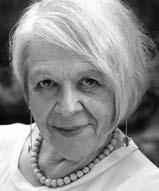
“WOULD YOU CARE TO DINE WITH ME? WOULD YOU CARE TO DIE WITH ME…”
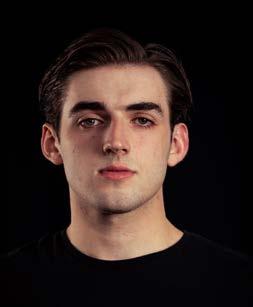
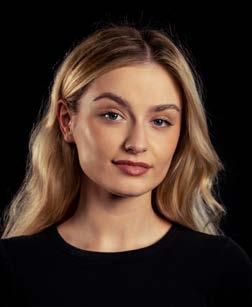
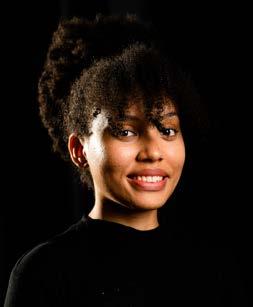
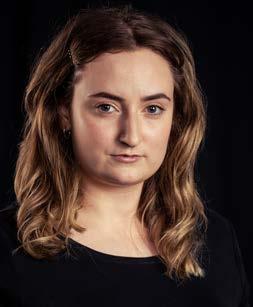
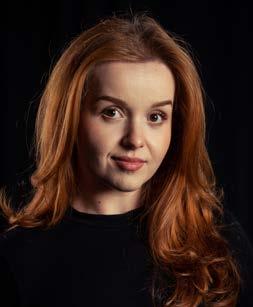
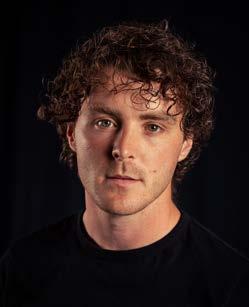
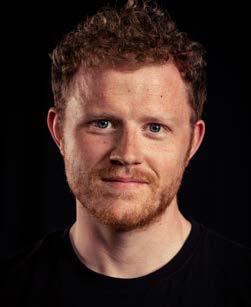
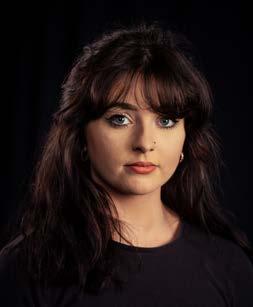
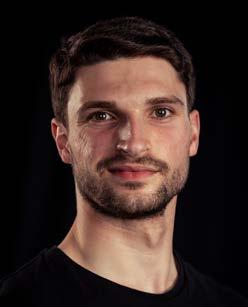
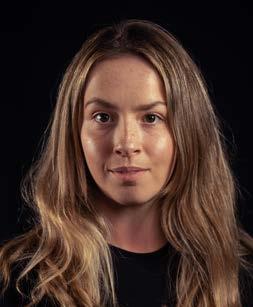
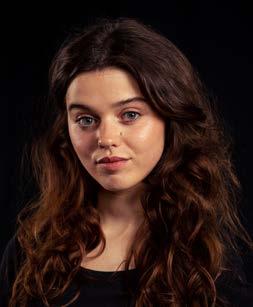
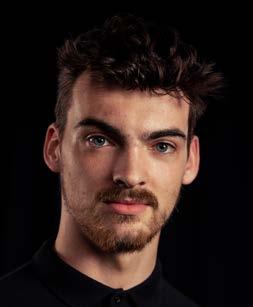

When Bram Stoker’s original novel was first published in 1897, it received mixed reviews. The Spectator called it “decidely mawkish… The up-to-dateness of the book – the phonograph diaries, typewriters and so on –hardly fits with the medieval methods which ultimately secure victory for Count Dracula’s foes.” However, the Daily Mail described it as “powerful and horrorful” and reckoned that “The recollection of this weird and ghostly tale will doubtless haunt us for some time to come.” And they were right! The novel has remained in print ever since it was first published and the story has also had huge success in the theatre and on both television and film. It has been translated into 44 languages and sold millions of copies around the world.
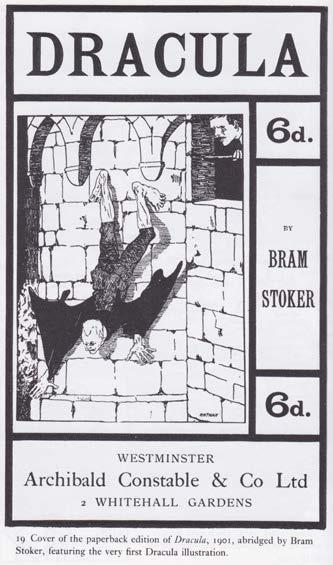
There is much debate as to who may have inspired the character of the Transylvanian nobleman: some argue he may be based on Sir Henry Irving, who demanded so much of Stoker in his professional life; others suggest inspiration came from the 15th century ruler, Vlad the Impaler.
Stoker wasn’t the first writer to explore the realm of the undead: John Polidori’s The Vampyre was the first popular account of vampirism published in England in 1819 and Varney the Vampire, which was serialised in 109 weekly instalments from 1845–1847, was a good example of the Victorian pennydreadful, much favoured by Lucy Westerman in Liz Lochhead’s play.
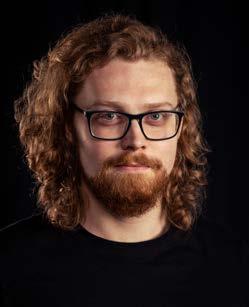
In 1985, Liz Lochhead was commissioned by the Royal Lyceum Theatre, Edinburgh, to adapt the novel for the stage.
“I was ashamed, though not as much as ought to have been, to admit I’d never actually read the Bram Stoker classic. But I said that I would do so…and next morning first thing phoned and said I’d do it. No one else was getting this job! This was after a sleepless night when I couldn’t put the book down…what with mad Renfield in his lunatic asylum eating flies and playing John the Baptist to his coming master; and with Lucy’s description of her ‘dream’ of flying with the red-eyed one above the lighthouse in Whitby; and Jonathan’s ‘dream’ of the three Vampire Brides’ advances upon him and of their being repelled at the last minute by the furious Dracula (This man belongs to me!).
My ‘yes’ phonecall was before I’d even got to the abducted children; or the ‘loving hand’ of Lucy’s fiancé staking her through the heart in her coffin ‘to bring her peace’; or that shocking rape-like bit where… Dracula takes his fill of her life’sblood before ripping open a vein in his own breast and ‘like a child forcing a kitten’s nose into a saucer of milk to compel it to drink’ makes her suck at and swallow his.
What really attracted me…to the story was Rule One for becoming a vampire-victim:
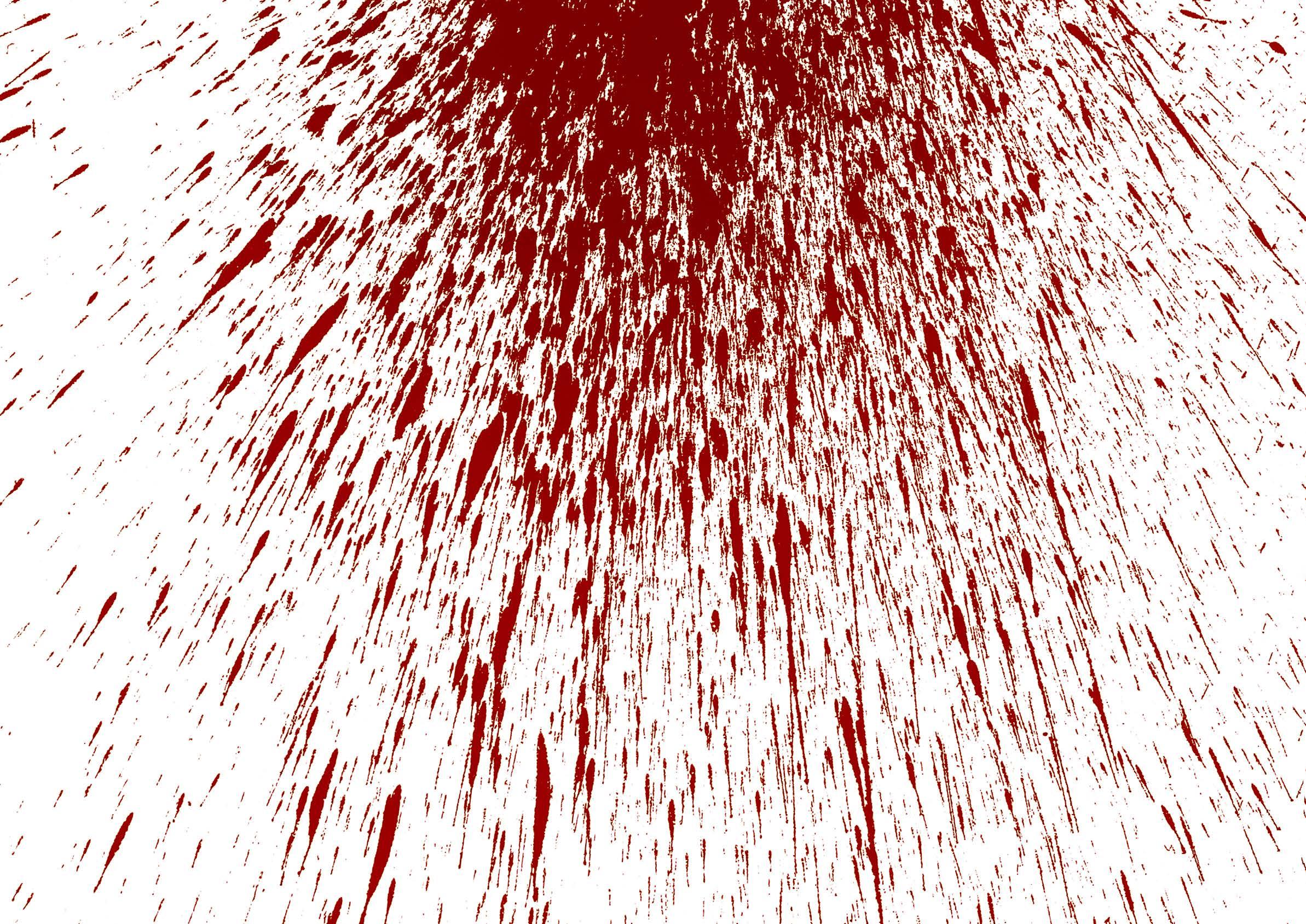
‘First of all you have to invite him in.’
What unappeased hunger in Lucy would cause her to invite him in? As the eminently sensible…maid, Florrie – she’s my own invention, she doesn’t exist in Stoker’s novel – says when the already infected, already addicted, already dying Lucy is terrified by a scratching, a flapping at the window: ‘I didn’t say bogies didn’t exist, I just say bogies is all kinds and sorts of things except bogies.’
‘Vampires exist. Vampire exist where men believe them to,’ says the sceptical, rational psychiatrist, Seward, before Van Helsing, along with the terrible happenings described so vividly described…convince him there really are more things in heaven and earth than are dreamed of in his psychology. I always knew – who couldn’t – that Dracula was a narrative of suppressed sexuality and sexual guilt. From rereading now my version..I seem, at that time of writing, to be in the act of becoming boldly, quite unselfconsciously and on the public stage, conscious of just how interested in the unconscious was!
If there is a strong element of pastiche, there is nothing of the spoof or the reductive in this retelling. I took it seriously. High-hokum as we all know it is, Dracula is truly great high-hokum.
Before the novel was published, Stoker – to ensure copyright – mounted a reading of a playscript of Dracula at the Lyceum Theatre in London. The 47 scenes lasted over 5 hours!
In the mid 1920s, the book was licensed for dramatisation to an actor manager called Hamilton Deane. His production toured for 3 years before opening in the West End, where it was savaged by critics. Nonetheless, it proved extremely popular with audiences and later opened on Broadway. The production there featured the Austro-Hungarian actor, Bela Lugosi. Despite reviews from the New York Post describing his performance as akin to an “operatically inclined but cheerless mortician” he was showered with romantic fan attention and he continued to play the role on stage until the late 1950s.
In March 1922, one of the scariest and most artistically successful film versions opened in Berlin. The expressionist Nosferatu, directed by FW Murnau has achieved legendary status, although for many, Tod Browning’s 1931 version fixed Bela Lugosi as the definitive Count Dracula in many minds. Starting in 1958, Hammer Films produced a series of vampire films starring the inimitable Christopher Lee as the Count and Peter Cushing as Professor Van Helsing. In 1992, Francis Ford Coppola’s Bram Stoker’s Dracula (a misleading title as it deviated so far from the original novel) failed to win critical acclaim, despite having a huge budget and a cast of celebrated actors including Gary Oldman and Anthony Hopkins.
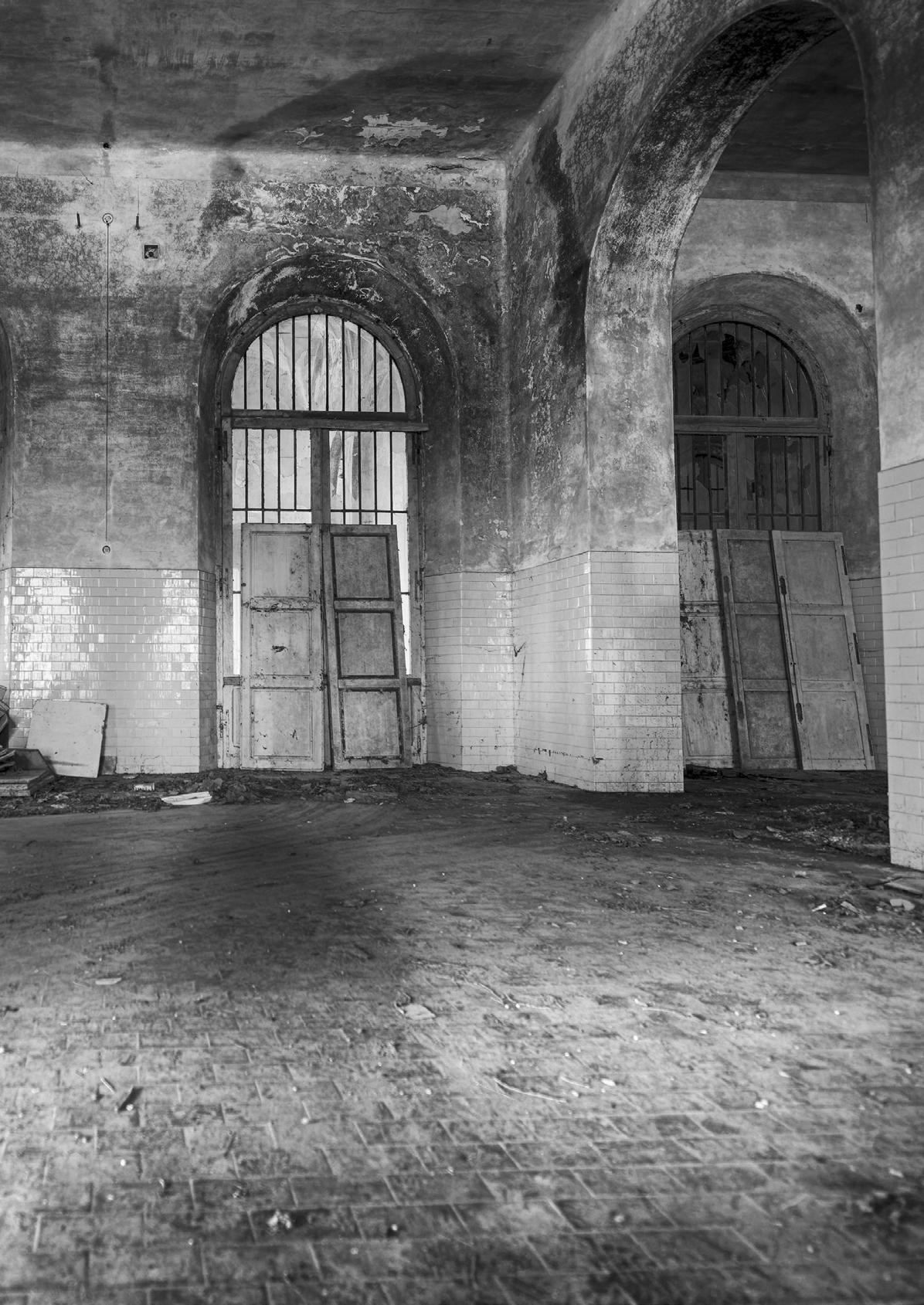
The Victorian mental asylum has the reputation of a place of misery where inmates were locked up and left to the mercy of their keepers, but when first built in the early 1800s, they were part of a new, more humane attitude towards mental healthcare
Before asylums, people with mental illness or learning disabilities were cared for almost entirely by their families. Those who could not be kept at home often ended up destitute, begging for food and shelter
Around the beginning of the 1800s reformers spearheaded a change in attitude towards mental healthcare. For the first time, local authorities had a legal responsibility for the care of mentally ill people in purposebuilt accommodation. The shift in emphasis from ‘custody to cure’ of mentally ill people resulted in a flurry of legislation.
With an ever-growing population, it became increasingly difficult to maintain the sort of personalised moral treatment envisioned by the early reformers. The 19th century began with the best of intentions, believing that a scientific approach to improved surroundings, and a humane approach to care could lead to rehabilitation and recovery; the new public asylums did make life easier for most pauper patients. Working in the asylum community gave them purpose and kept them reasonably well fed. In return for their good behaviour and hard work, they were rewarded with social activities such as plays, concerts and parties.
BY
1878: The Lyceum Theatre, London. Three extraordinary people begin their life together, a life that will be full of drama, transformation and passionate devotion to art and one another: The Chief – Henry Irving (volcanic leading man and impressario), The Leading Lady – Ellen Terry (most lauded actress of her generation) and The Theatre Manager – Bram Stoker (following along behind them in the the shadows). Fresh from life in Dublin as a clerk, Bram may seem the least colourful of the trio but he is wrestling with dark demons in a new city, in a new marriage, and with his own literary aspirations. As he walks the London streets at night, streets haunted by the Ripper and the gossip which swirls around his friend Oscar Wilde, he finds new inspiration. But the Chief is determined that nothing will get in the way of his manager’s dedication to the Lyceum and to himself. And both men are enchanted by the beauty and boldness of the elusive Ellen.
This exceptional novel explores the danger and complexity of uncoventional love, the restlessness of creativity, and the experiences that led to Dracula, the most iconic supernatural tale of all time!
In this groundbreaking portrait of the man who birthed an undying cultural icon, David J. Skal “pulls back the curtain to reveal the author who dreamed up this vampire.” Examining the myriad anxieties plaguing Victorian fin de siècle, Skal stages Bram Stoker’s infirm childhood against a grisly tableau of medical mysteries and horrors: cholera and famine fever, childhood opium abuse, frantic bloodletting, mesmeric quack cures, and the gnawing obsession with “bad blood” that pervades Dracula In later years, Stoker’s ambiguous sexuality is explored through his passionate youthful correspondence with Walt Whitman, his adoration of the actor Sir Henry Irving, and his romantic rivalry with lifelong acquaintance, Oscar Wilde.
Recalling the psychosexual contours of Stoker’s life and art in splendidly gothic detail, Something In The Blood is the definitive biography for years to come. A keepsake for any Dracula enthusiast!